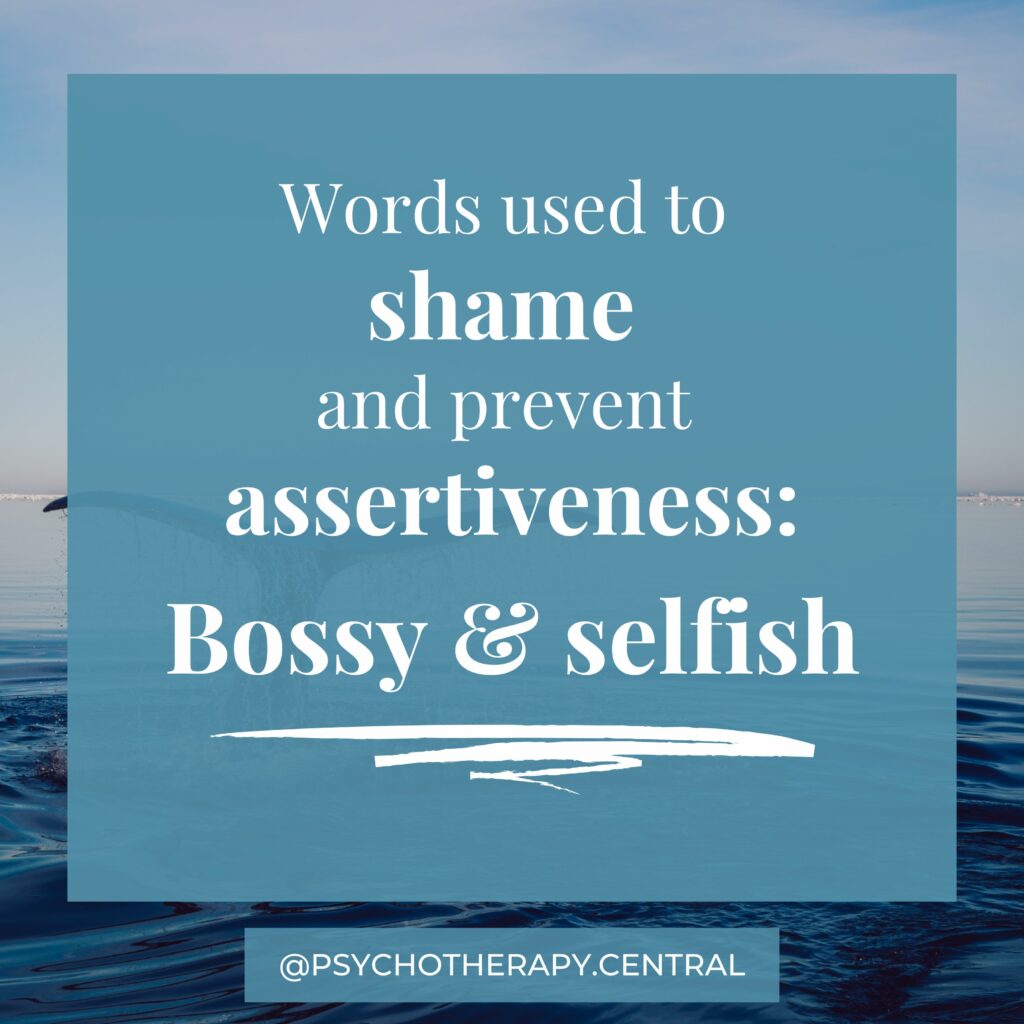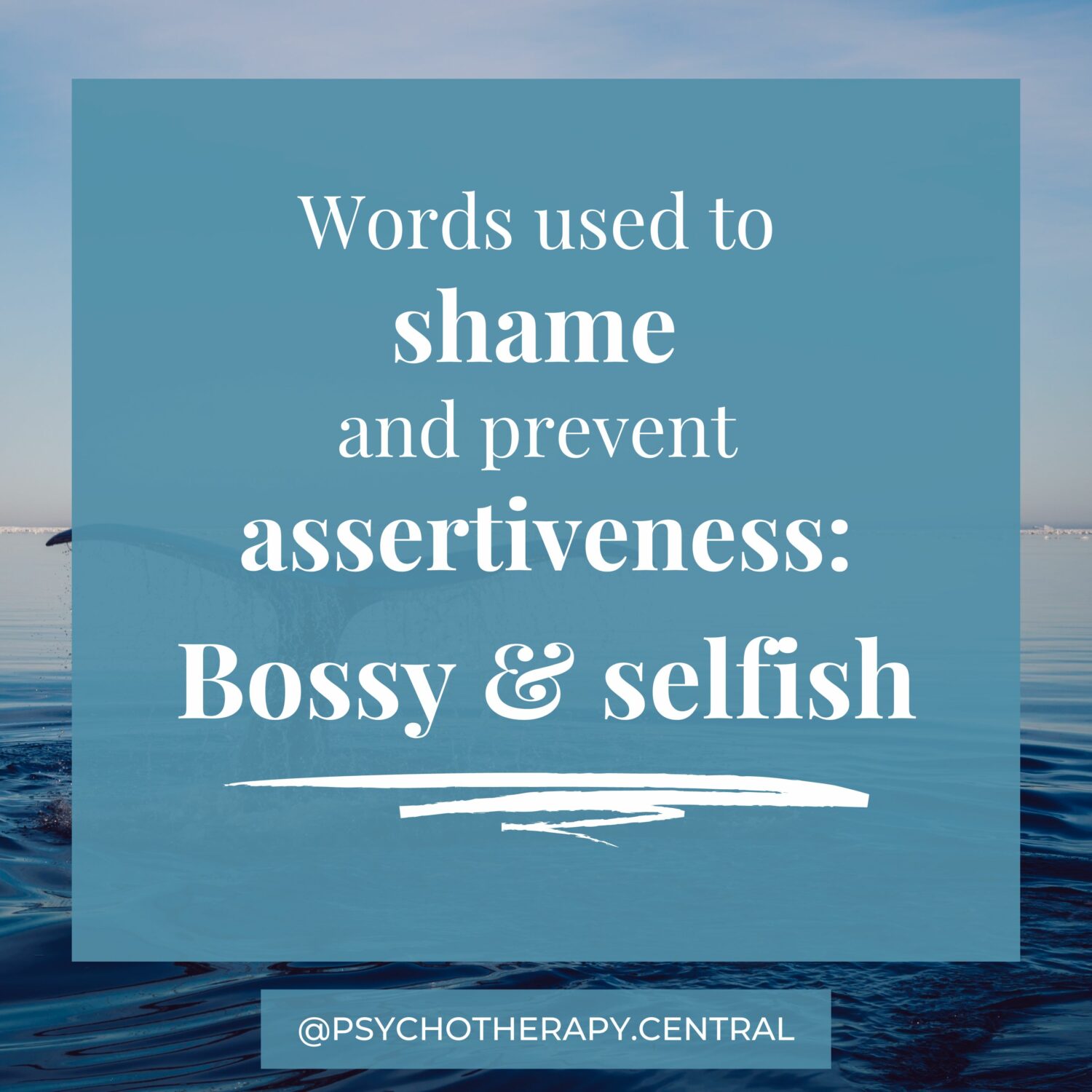A sure way to stop people from being assertive is to shame them. As Brene Brown talks about so wonderfully in her book ‘Daring Greatly’, shame is pervasive in our culture. It limits innovation, authentic self-expression and stops us from taking risks.
Shame shows up in all areas of life. You might feel shame about your weight, about not being able to get pregnant, your employment, being single or parenting.
When I referred to the Cambridge Dictionary online to look up ‘bossy’, three of the five examples were about women. One was gender neutral, and the other was male. My experience is also that I hear the word ‘bossy’ used more for women than for men.
Is this word used to refer to assertive women? Is it used to stop them from being seen and heard, to keep them in the role they were in, and prevent them from getting their needs met? If you are a woman who has been called ‘bossy’, I’d love to hear about your experiences with this.
Selfish is another word people might hear when they start to become more assertive. When we assert ourselves in an area for the first time, when we start to put our needs first, one of the pushbacks we might receive is a kind of shaming… ‘you are selfish’. Maybe you are being selfish, and maybe that is reasonable. Every situation is different.
Before accepting or rejecting the label selfish, I like to look at the broader overview of my life, to see where and how I put the needs of others above my own. Maybe there is some rebalancing to do, and maybe not.
Remember the gifts of assertiveness:
- Anxiety reduction
- Increased self-esteem
- Less depression
- Improved relationships
- Confidence
- Strong sense of identity
Assertiveness is knowing what you need for self-care and being able to communicate it effectively. It is having strong self-esteem and being able to maintain healthy boundaries. The gifts are great.
I’ll be following up with more posts about shame in our culture and ideas about how to remedy it.
Love, Jen

